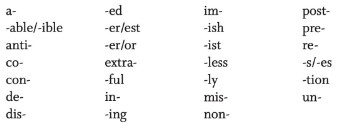for the love of reading (and writing)
1/14
Earn XP
Description and Tags
ankowski winter 2025
Name | Mastery | Learn | Test | Matching | Spaced |
|---|
No study sessions yet.
15 Terms
why are jokes beneficial in growing language and cognitive skills?
Understanding that words have multiple meanings is important to understanding jokes AND comprehending text
what is the developmental time course of jokes?
0-2: slapstick comedy that is overt and primarily action-based
2: ridiculous statements as basic jokes
3: beginning to appreciate formulaic jokes (knock-knock)
4 and up: beginning to understand more nuanced aspects of words, like homonyms, synonyms, and words with multiple meanings
what are the benefits of humorous books on memory and learning?
when reading humorous books together, families engage in higher-quality conversations with more complex ideas and more advanced vocabulary
people of all ages remember things better when taught with humor
how is music and language related?
processing patterns in music and language have similar demands (learning a symbolic system) and activate overlapping brain regions
Moritz et al. (2013): music training & language skills
compared kindergarteners with intensive and less music training
children with more music exposure had better rhythm abilities, phonological awareness in kindergarten, and reading skills in 2nd grade
how can spelling be used before learning to read?
it can help teach reading because it requires choosing the right letters to represent the phones you hear in the word (strengthens knowledge of letters and letter sounds)
what are morphemes?
prefixes and suffixes

Jones et al. (2004): implicit egotism
the tendency to unconsciously prefer things that remind us of ourselves
benefits of first name talk
since a baby’s first name is the first word they comprehend, using a child’s first initial can be used to attract interest in letters
Treiman et al. (2015): first name talk
observed parents and children (ages 1-4) in conversations about letters
conversations about letters beginning children’s names were longer than other letters
parents who talked more about the first letter of their child’s name had children with greater kindergarten readiness
what are some weird words?
synonyms, antonyms, abbreviations, acronyms
Lever & Senechal (2011): dialogic reading & story knowledge
5 year old’s were tested on their ability to create a story from a wordless picture book after being in reading groups
dialogic reading resulted in better structured stories with more mental state words
what is the development of writing?
drawing as writing: “picture power”
invented spelling: “kindergarten perfect”
what is being learned in early writing practice?
even when kids are scribbling, they are
involved in the writing process
learning the relationship between spoken & written language
learning alphabetic principle
learning the relationship between writing and reading
Longcamp et al. (2005): handwriting letters
children copied letters by hand or on a typewriter and handwriting showed better letter recognition